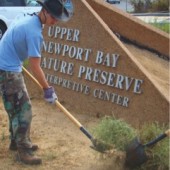
Abstract: If we are to educate the coming generation about the threats to the environment and the consequences of the excesses of human actions on our planet, educators need to consider critical pedagogy as a means of engaging students in thought and action. This article examines texts from prominent sustainability advocates and researchers, analyzing how they frame sustainability on a spectrum of hope that will then enable educators to address sustainability education with a realistic sense of agency while preparing students to meet the challenges for a sustainable future. Suggestions for pedagogical applications are included for each category across the spectra of hope.
Continue ReadingAbstract: Sustainability educators are in a difficult spot. They must describe our unsustainable impacts on the environment and marginalized peoples, our growing understanding of how these impacts affect future generations and other species, and our failures to make the changes necessary to approach sustainability. At the same time they must avoid pushing students over an obscure tipping point where such information causes them to retreat into despair. For despair leads to inaction, which will only hasten the deterioration of planetary health. We propose two approaches to helping students avoid despair and strengthen their motivation for pursuing sustainable changes. One approach appeals to the motivational energy of hope and the other to the power of tranquil resolve described in Stoicism. We understand these approaches to be complementary. The skills of hope work well when we are pursuing long shot goals, while those of tranquil resolve aid when the achievement of our goals is beyond our own control. While the skills of hope are more aligned with our cultural norms and thus likely easier to teach, skills associated with a tranquil resolve can more powerfully (and lastingly) address the climate challenges we face. Pedagogical examples and strategies of these skills in action are offered throughout.
Continue Reading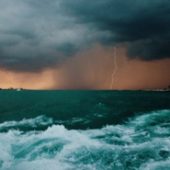
While sustainability is often perceived from a framework of fear, emergent understandings of sustainability are rooted in pedagogies of hope. In particular, radical hope, or critical-transformative hope, is transforming sustainability. Radical hope is contextually dependent and is made meaningful when in action. Collective movements such as the buen vivir social movements and transition movements are realizations of radical hope in praxis. Overall, this paper aims to demonstrate that through a multiplicity of movements, sustainability is in the process of continual becoming.
Continue ReadingEditor’s Corner Hope and Agency as Ontological Imperatives for Sustainability Education Tina Lynn Evans, Colorado Mountain College Editorials Hope … in a Hopeless World? Randall Amster, Georgetown University Sustainability Programming is an Ethical Obligation for Higher Education in the Environmental Century Stephen Mulkey, Unity College On the Future of Hope Douglas Dupler, University […]
Continue Reading
Abstract: This essay examines Randall Amster’s book Peace Ecology as a critical intervention articulating vital connections among discourses from peace and justice studies (on one hand) and the most vexing problems addressed by sustainability studies (on the other): from violent conflict and social inequity to environmental injustice and global ecocide. Reading this dialogue through the lens of hope, the author argues that Amster’s synthesis of this research provides effective tools for helping educators, students and practitioners of sustainability to generate new thought – and direct action – around these issues. By cataloguing and analyzing the many successes of ecological peacebuilding without absolving the paradigms of thought that continue to propagate war against people and planet, Amster empowers us to avoid both the trap of despair and the delusion of complacent optimism in order to foster the conditions that promote human beings’ mutually-beneficial peace and coexistence with each other and with the Earth.
Continue Reading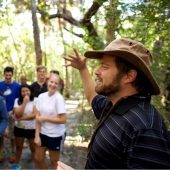
In this paper, I draw from the fields of curriculum studies and the environmental humanities to address the sustainability issues associated with the Anthropocene and to theorize what it means to reinhabit our unique bioregions. I argue that it is time to transgress the fragmented and mono-disciplinary investigations emblematic of the academy by embracing pluralistic ways of knowing and going beyond conventional epistemologies to better understand the cultural forces involved in wicked problems such as climate change. Using autoethnography, I draw from my personal experiences related to higher education for sustainable development while discussing what it means to better appreciate a problem’s intractability and to hold our assumptions open to questioning. Additionally, I make connections to Donna Harraway’s conception of staying with the trouble in the midst of these socio-ecological turbulent times. Accordingly, I theorize what it means to stay with the trouble by learning to “love the questions” inherent to studying sustainability issues while articulating the roles that reflection, storytelling and transdisciplinary scholarship play in (re)envisioning a future that sustains the (more than) human world.
Continue Reading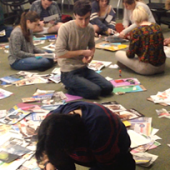
Standardized, assembly-line models of education have created significant momentum for unsustainable classroom situations. Classes are sustained throughout the term using ranking systems and proof of outcomes such as grading and reporting on content knowledge acquired. There is a clear ending in sight. Both students and instructors are often bound to this ending, often feeling a deep sense of relief at the end of each class session. As sustainability educators, we have become conscious that industrialized methods of education no longer serve societies re-envisioning ways of sustaining themselves. Sustainability Education necessitates sustainable classrooms – spaces that are alive, adaptive, and open to innovation. We explore design principles that can support sustainable classrooms, focusing on creativity, humanity, horizontality, and compassionate facilitation. We share examples of creative learning tools used in a 300-level Sustainability classroom in Arizona State University. Data collected through student interviews and journaling are woven throughout the article to ground our viewpoints with practical insight.
Continue Reading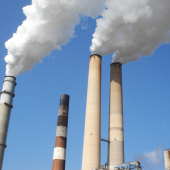
Abstract: The shift away from coal to renewable energy for electricity generation is producing environmental benefits during the climate crisis but also poses uncertainty for coal producers and others along the coal supply chain. Media representations of the coal debate shape how citizens understand and respond to it. This commentary exposes how audiences – even of pro-environmental media – reproduce dominant discourses promoted by fossil fuel corporations and reconceptualize those discourses into a Not in my Backyard (NIMBY) worldview. Critical discourse analysis helps to reveal how tensions between coal companies and renewable energy proponents are exacerbated by controlled coal messaging. Coal propaganda evokes images of a noble and reasonable energy source and places coal within a positive framework that enhances local knowledge, protection, and economic security. Conclusions point to the importance of media literacy instruction as a means for consumers to gain critical distancing strategies and broader perspectives about the climate crisis.
Continue ReadingAbstract: In recent years, media scholars and educators have made an effort to address ecological issues in their work. Ecomedia literacy adapts the principles and practices of the media literacy movement in order to prepare the public to critically engage with the relationship between media and the environment. However, this article argues that the philosophical frameworks, on which existing approaches to media literacy education are founded, are limited. The field’s reliance on traditions of constructivism and cultural studies allows learners to engage with ideas, but not things. The article argues that an ecomedia literacy that draws from speculative realism—in particular, in recognizing the reality of non-human things, emphasizing materiality, and challenging the nature/culture divide—will more effectively prepare the public to critically engage and practically respond to pressing ecological issues such as climate change.
Continue ReadingAfter the 2016 US-presidential election and Brexit referendum, fake news emerged as a quintessential democratic problem that media literacy was tasked to solve. The broad social concern about fake news acknowledges that the public sphere is a kind of commons that requires tending, and reminds us of the human (and civic) need for authenticity, honesty, clarity, and fairness in our shared discourses. In light of the perceived danger to democracy that fake news embodies, increasingly media literacy is seen as fundamentally about cultivating civic engagement skills. In addition to improving the news and information ecosystem of social media, media literacy promotes critical thinking skills and fundamental research techniques to distinguish legitimate and authentic information from propaganda, disinformation, hoaxes, lies, and blatant manipulation.
Continue ReadingThe Egyptian city of Cairo has a long history of charitably endowed water fountains, called sabils, that form an integral part of the urban landscape by offering drinking water to passersby. The local knowledge of sabil keepers and users in Cairo offers perspective into the value of centering ethical frameworks in conversations about water resilience. As global climate change has manifested in cities in the Middle East, urban dwellers, particularly those with the fewest resources, face mounting problems with water insecurity. This paper examines how two communities in Cairo are using sabils to modify their built environment to better serve their water needs and contextualizes the ways in which religion and systems of reciprocity are integral to these local processes. This article examines the knowledge contained in the sabil practices of marginalized urban communities through the educational strategy of ethnographic research in a joint faculty-undergraduate team.
Continue Reading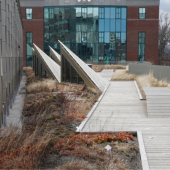
Abstract: Higher education campuses play an important role in developing visionary models of sustainability that integrate campus facilities, student learning, and research. We reflect on a series of visits to campuses within New York state utilizing systems thinking analysis of sustainable initiatives finding interconnections between buildings, pedagogy, and campus life. Campus infrastructure-systems, curriculum, and campus actors present agentic interconnections that contribute to teaching the campus community about sustainable systems. Our journey presents three big ideas for conceptualizing our encounters: wayfinding, defining occupancy, and implementing a vision that articulate how campus spaces and green infrastructures exert agency in teaching us about sustainable living. These big ideas are explored to conceptualize and reflect on our role as art and design faculty to use our workplace and hence campus life as a context within which to speculate on sustainable living.
Continue Reading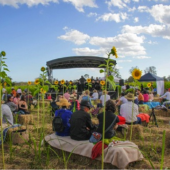
Abstract: Solutions to environmentally damaging human practices require cooperation between many different communities. This article explores sustainability-focused education through the lens of a current work-in-progress, Sugar vs the Reef?, which involves collaboration between sugarcane farmers and artists in the arable catchment of the Great Barrier Reef in North Queensland. This is a socially engaged art project that is addressing the fraught relationship between the region’s agriculture and the fragile ecology of the Reef. We introduce some of the specific aspects of socially engaged art (SEA) which commend it as a cross-disciplinary method for bridging diverse individuals and organisations – in particular, the notion of a “holding environment” for complex socio-ecological situations. We consider how this approach might broaden the agricultural practice of “extension” which aims to transform farming through educational outreach. Ideas emerging from contemporary socially engaged art practice may contribute to a toolkit for researchers and practitioners within and beyond the academy who are searching for ways to overcome the limitations of current methodologies and movements for social change.
Continue ReadingThis essay presents an exploration of a wide spectrum of current ecocultural relations through the creative methodology and expression of performance. We present a script of a performance inspired by a seemingly simple prompt for a pedagogical free write exercise “When I say ‘nature,’ I mean…” The goal of the free write exercise is to illuminate and open up for questioning and transforming our cultural assumptions, embodied meanings, and social constructions associated with the idea of “nature.” The authors/performers reflect about the process of creation and their intimate struggles with environmental ideologies often hidden behind the veil of common sense, political posturings, or disciplined concealments. As an art form, performance allows engagement with imaginations that emerged as radical, thus insinuating the need for a more nuanced and free scholarship, as well as for embracing performance as liberating pedagogic activism.
Continue Reading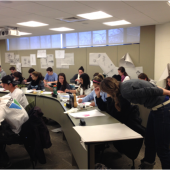
Engaging students not majoring in science, sustainability or environmental studies in learning environmental literacy and shifting their attitudes and behavior toward nature often requires a multi-perspective approach and presents unique challenges. We sought to: (1) pair artistic perspectives with botanical concepts to educate and interest our students in learning environmental literacy, (2) engage our students in careful observation and visualization of nature, and (3) increase the environmental sensitivity of our students by connecting botany with nature based art. To do this we designed a pre-class assignment, an in-class botanical art workshop, and a written reflection assignment that asked students to view, conceptualize, and create works of botanical art as a multi-perspectival process of engaging with relevant scientific processes and environmental concerns connected to botany. Here we provide a justification for the value of bridging science with art, detail our approach, describe student survey responses and thoughtful written reflections, and illustrate lessons learned and future plans.
Continue ReadingAbstract: Sustainability has the potential to provide a holistic framework that can bridge the gap that is often found between socio-economic justice and environmental discourses. However, sustainability and sustainability education have typically accepted the prevailing socio-economic and cultural paradigm. It is my aim in this paper to demonstrate that a truly holistic and visionary sustainability (education) framework ought to demand radical and critical theories and solutions- based approaches to politicize and interrogate the premises, assumptions, and biases linked to the dominant notion of sustainability. If we are to envision and construe actual sustainable futures, we must first understand what brought us here, where the roots of the problems lie, and how the sustainability discourse and framework tackle—or fail to tackle—them. To do this is to politicize sustainability, to build a critical perspective of and about sustainability. It is an act of conscientização (or conscientization), to borrow Paulo Freire’s seminal term, of cultivating critical consciousness and conscience. In lieu of the standard articulation of politics as centralized state administration, ‘critical sustainability studies’ is based on a framing that gives prominence to a more organic, decentralized engagement of conscientious subjects in the creation of just, regenerative eco-social relations. It illuminates the ideological and material links between society, culture, and ecology by devoting particular attention to how knowledge and discourse around and across those realms are generated and articulated. I believe that future scholarship and activism in sustainability and sustainability- related fields would benefit immensely from dialoguing with this framework.
Continue ReadingThis piece examines narratives of place from diverse actors who engage with forests in the Yukon Territory, Canada. In examining personal stories of forest experience, I show how a single locality can be multiple places. In addition, this work focuses on the ways in which stories of experience are also expressions of legitimacy and belonging. What is shown are the varied mechanisms of engagement, the diverse places created, and the voices which are at once individual and influenced by a broader social context. As educators I argue we need to examine overlapping narratives of place. Through focusing on experience the intersecting nature of different localities becomes clear. As does the necessity to situate such narratives within their broader context, one within which experience is a key aspect of determining the legitimacy of land-use voices.
Continue Reading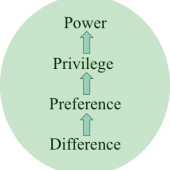
This paper explores the intrinsic but often weakly developed links between sustainability and issues of diversity, power, and privilege. It offers a systems-oriented conceptual framework for exploring and understanding how issues of diversity, power and privilege operate in social-ecological systems. This framework can be used as a learning tool with a wide array of audiences (higher education, organizational development, adult learners) and educational contexts (including but not limited to sustainability education programming).
Continue ReadingPDF:PramodSpring2014 Key Words: Sustainability Education, State of the Field, Prescott College, Ph.D. Program in Sustainability Education The problems we are facing are linked. It is not a set of problems. It is a system of problems. Now it is time to look at the system of solutions. – Janine Benyus, Nobel Laureate Symposium, 2011. […]
Continue Reading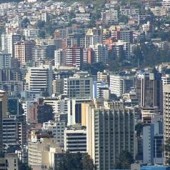
Two developing strands of a multidisciplinary literature provided an impetus for this paper: 1) the emergence of new regionalism, new urbanism, and smart codes that inform urban planning and design principles and practices for environmental sustainability, and 2) the diffusion of telecommunication and multi-media technologies that facilitate implementation of pedagogic principles in the “classroom.” The emerging urban planning and design paradigms anchor environmental sustainability issues firmly in place and space with an emphasis on the physical form of cities and regions, which, due to induced vehicular travel, is linked to greenhouse gases with consequences for climate change. Innovations that enhance learning in the classroom or the community increasingly embed and diffuse telecommunication and multimedia technologies. The intersections of urban sustainability, planning, pedagogy, and technology are briefly reviewed in this paper. It turns out that urban planning and design paradigms—particularly those with an emphasis on systemic knowledge, holistic views of both the natural and built environments, collaboration, communication, and reflective practice—synergize with environmental sustainability goals. Furthermore, these very features are ingredients for effective education for urban sustainability, particularly in conjunction with advanced telecommunication and multimedia technologies.
Continue Reading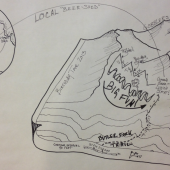
The socioecological challenges we face have never been so complex, so intractable, and so urgent. And while both justice-oriented education and education for sustainability are growing in colleges and universities across the United States, normative perspectives of outdoor experiential education have fallen embarrassingly behind. In this paper, we offer critical sustainability as a conceptual basis for engaging students in the beauty, perversity, and complexity of our world. Critical sustainability, integrating sociopolitical systems of privilege and oppression with the socioecological imperatives of global health and justice, provides an exciting and promising pedagogical direction. With this conceptual framework, we explore perspectives of “nature,” placefulness, and our multiple, overlapping subjectivities as students, educators, and engaged citizens. Our task as outdoor educators is to bring the faraway nearby and inspire students to engage in the myriad challenges we face as individuals, citizens, and as members of a global ecological community. We conclude by offering place mapping as a pedagogical technique to support elements of critical sustainability in outdoor education settings and beyond.
Continue Reading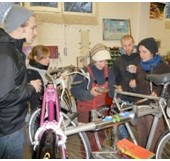
In their action project seminar course, Daniel Fischer and Marco Rieckmann show how students applied the principles of sustainable consumption while initiating several impressive on-campus programs to help the community obtain food, clothing and transport in a sustainable fashion. Using a solid theoretical foundation, the course shows how to integrate the formal and non-formal aspects of sustainability education.
Continue Reading